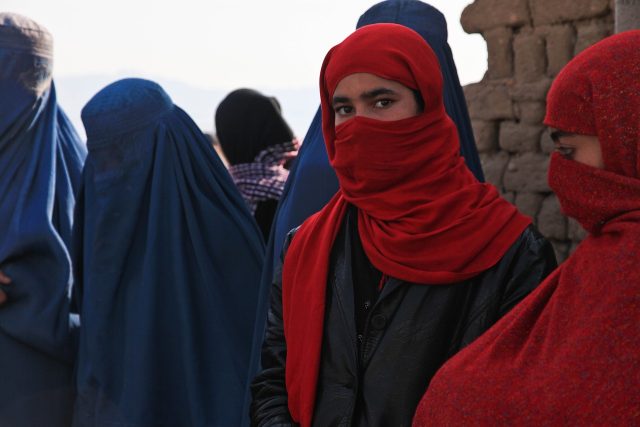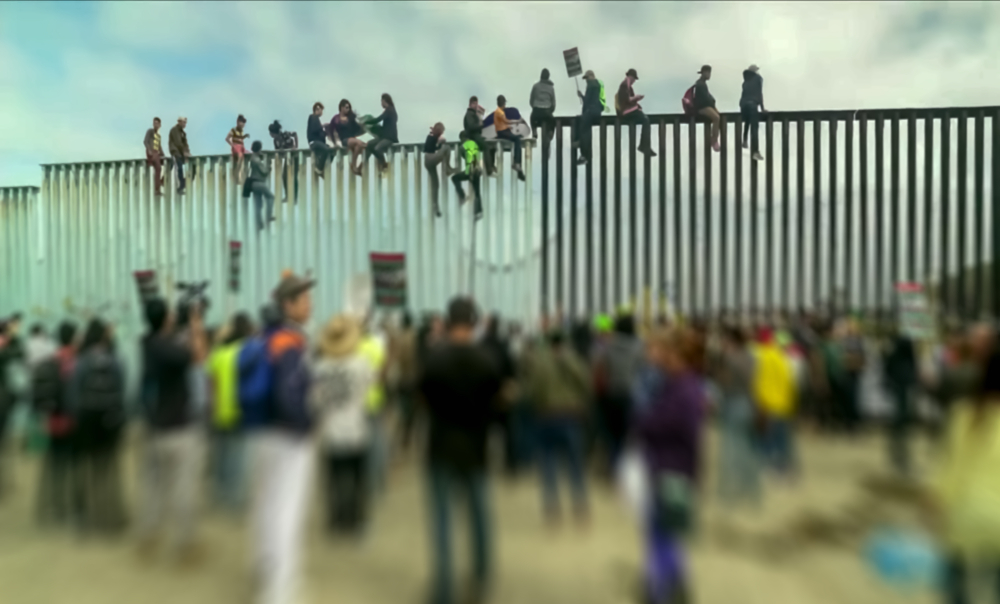
All women from Afghanistan have the right to apply for refugee status in any EU country on the basis of their nationality and gender, according to a decision by the Court of Justice of the European Union on Friday, the 4th of October. This decision is sure to spark long and fierce controversy among Member States, some of which are fighting a bayonet battle to stem the flow of migrants.
Because of discriminatory measures against women imposed by the Taliban regime, which came to power in August 2021 following the withdrawal of US and NATO troops from Afghanistan, all Afghan women can apply for refugee status in the EU. According to UN representatives, the Taliban regime imposes “gender apartheid” as a result of its extremely strict application of Islamic law.
The CJEU’s decision was handed down after the Austrian Administrative Court referred the matter to the court after the Vienna authorities failed to recognize the refugee status of two women from Afghanistan. The Austrian Administrative Court refused their asylum applications and the two Afghans challenged the refusals. This prompted the Austrian Administrative Court to request an opinion and thus a decision from the European Union’s highest court, the Court of Justice of the European Union. It should be recalled that the two Afghan women had applied to have their refugee status recognized in 2015 and 2020 respectively.
“The competent authorities of the Member States may consider that it is not necessary to establish whether the applicant is actually and specifically at risk of persecution if returned to her country of origin. The mere consideration of her nationality and gender is sufficient,” the Luxembourg court’s decision, handed down in a case related to Austria, said.
In the first case, one of the 17-year-old women (born in 2007) arrived in Austria after fleeing Iran, where she had been living with her family without a residence permit and was therefore not entitled to work and study in Iran. According to documents submitted to the Austrian court and the CJEU she never lived in Afghanistan. However, the CJEU noted a document in which the woman indicated that if she went to Afghanistan she would be in danger of being kidnapped. The CJEU also noted that the woman, if returned to Afghanistan, would not be able to go to school and would not be able to support herself without family support.

In the second case decided by the CJEU on the 4th of October, on the basis of the evidence on file, a woman fled from Afghanistan to Iran at the age of 13-14, accompanied by her mother and sisters. The reason for her exile was that her father, a drug addict, had tried to sell her in an attempt to get money.
On the basis of the evidence presented, the CJEU held that both forced marriage, which can be assimilated to a form of slavery, and “lack of protection against gender-based violence and domestic violence” were considered acts of persecution. Viewed from a much broader spectrum, “the cumulative effect and the intentional and systematic application of discriminatory measures amount to a blatant denial of fundamental rights related to human dignity”. The Interior Ministry in Vienna, although asked for comment by Reuters, had no immediate reaction to the CJEU decision.
At EU level, Member States retain sovereignty over whether or not to grant asylum. However, decisions of the CJEU create case law and therefore these decisions must be taken into account by the national courts of each EU Member State. In the Nordic EU countries (Denmark, Sweden and Finland) Afghan women are already granted refugee status.
Within the Union, refugee status for Afghan women is already granted in Sweden, Finland and Denmark. France’s National Court for the Right to Asylum (CNDA) ruled in July that “all Afghan women”, as a “social group”, can be granted asylum.
How are Afghan women repressed?
After the return to power in Afghanistan of the Taliban after 20 years of conflict, in August 2021, citizens of EU countries and some Afghan nationals at risk (possible accusations of collaboration with NATO and US representatives leading to a death sentence from the new regime) were evacuated. Three years ago, the EU evacuated 22,000 Afghans (human rights fighters, women, journalists, civil society activists, police and law enforcement officials, judges and judicial professionals). It should be recalled that, since 2014, Afghan nationals have represented the largest group of asylum seekers and refugees in the European Union, 80% of whom are women and children.
Since the Taliban seizure of power, there have been repeated violations of human rights in Afghanistan, particularly women’s rights. For Afghan girls and women, the Taliban’s return to power has led to systematic and brutal oppression in all aspects of life.
For example, after August 2021, women were banned from returning to work or continuing their education in schools and universities. In the case of protests in support of women’s rights, the Afghan leadership uses lethal force without hesitation.
The Revolutionary Association of the Women of Afghanistan (RAWA), founded in 1977, has compiled a list of the bans women suffered between 1996-2001. We list some of these bans. As a result, Afghan women are prohibited from any activity outside the home. The exception is if they are accompanied by ‘mahram’. The mahram is the closest male relative (father, brother or husband). Women in Afghanistan are banned from radio, television or public gatherings of any kind. They are obliged to wear a burqa covering them from head to toe and are not allowed to be treated by male doctors. Afghan women are also not allowed to conduct any kind of commercial transaction with men. The Taliban have turned girls’ schools into religious seminaries and banned women from studying in schools, universities or any other educational institution. Girls over the age of 12 have been excluded from education.

Women who do not dress according to Taliban rules or who are not accompanied by a ‘mahram’ are flogged. Likewise women whose ankles can be seen are flogged in public. Women accused of extramarital affairs are also stoned to death in public. Photographing women and printing pictures of women in magazines and books is forbidden in Afghanistan. It is also forbidden for women to play sports or join a sports center or club, and it is also forbidden for women to gather for recreational purposes.
In a 114-page document containing the new orders, the Kabul regime has formulated a comprehensive set of rules on morality under Islamic law (sharia). The new rules, announced in August, imposed tougher measures aimed at regulating the daily lives of Afghan citizens. According to the document, adult women are banned from looking at foreign men, are required to cover their faces to avoid temptation and temptation from others, and are forbidden to speak loudly in their homes. Women who defy the new rules are arrested and sent to prison. The morality ministry said it had arrested thousands of people for breaking the rules.
According to a UN report released to the public in July 2024, the “Ministry for Propagating Virtue and Preventing Vice”, established by the Taliban in 2021, is contributing to a climate of fear and intimidation among Afghans through edicts and the methods used to enforce them. The same UN report argues that the ministry’s role extends into other areas of public life, including monitoring the media.



 Subscribe
Subscribe